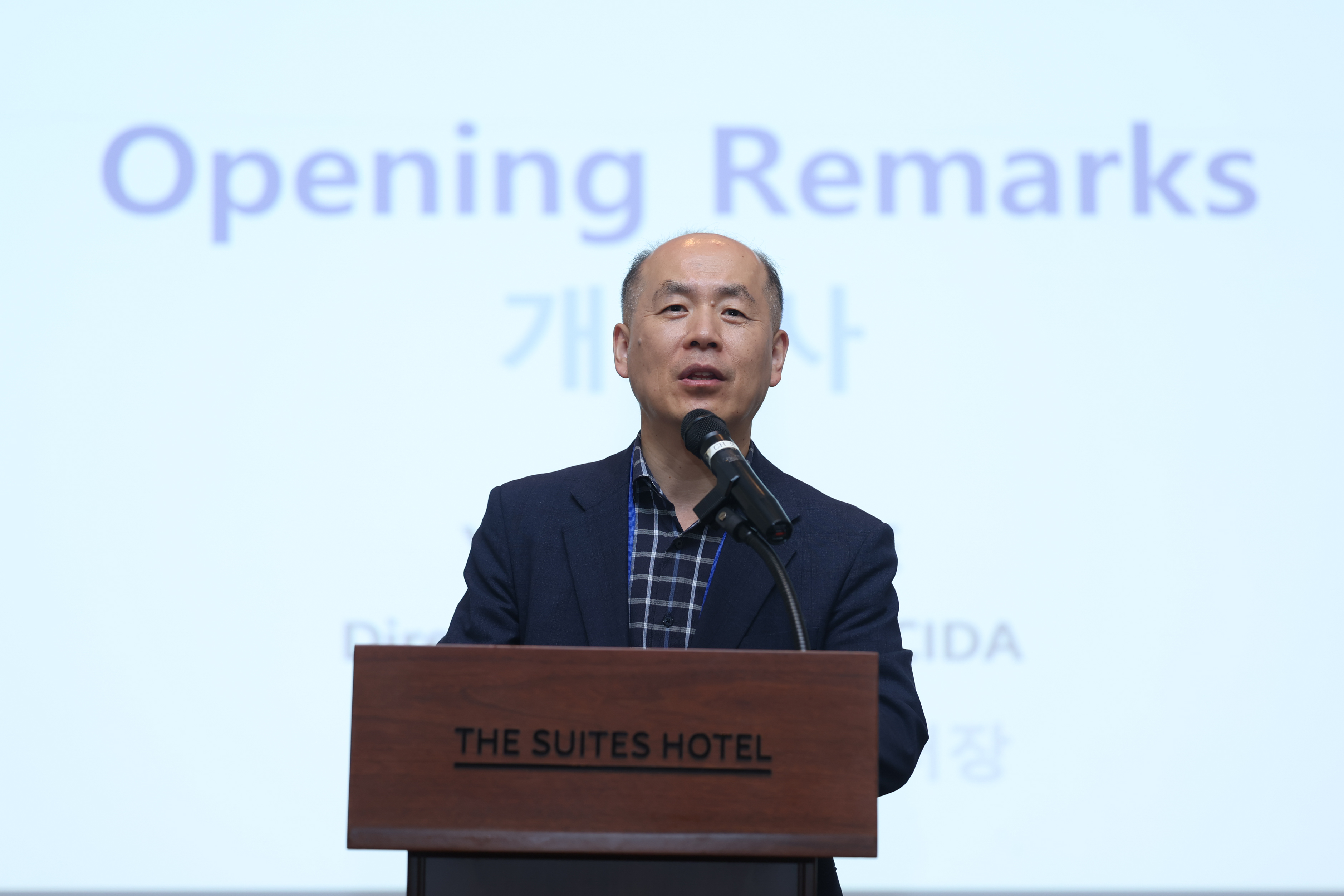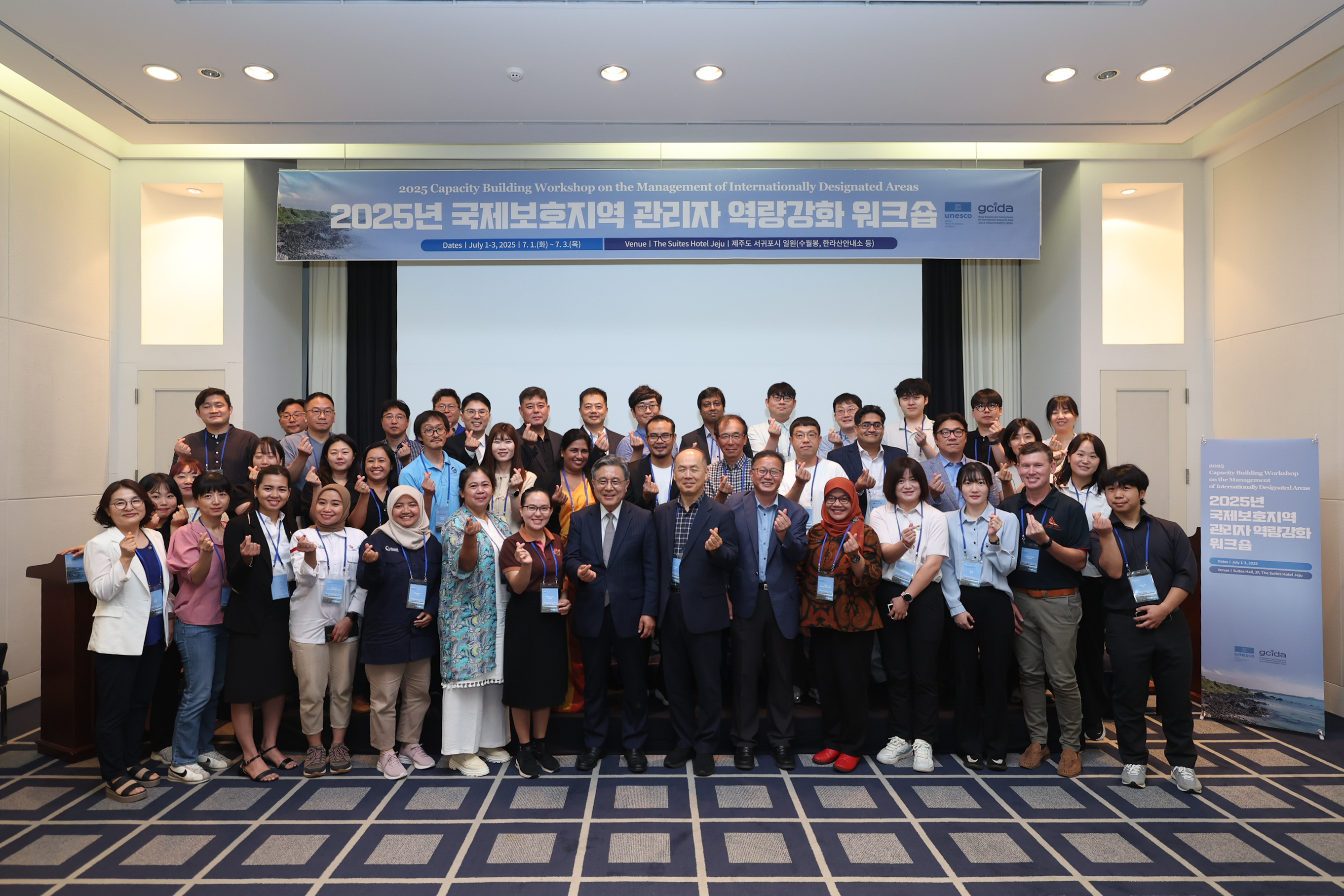[NEWS] IUCN and GCIDA are strengthening collaboration on Internationally Designated Areas
The increasing overlap between the over 3,500 internationally designated areas (IDAs) - including nearly 300 natural World Heritage sites, 759 Biosphere Reserves, 229 UNESCO Global Geoparks, 105 Globally Important Agricultural Heritage Systems and more than 2,500 Ramsar Sites - comes with specific management challenges. To address these, IUCN is reinforcing its collaboration with the UNESCO Category 2 Centre Global Research and Training Centre for Internationally Designated Areas (GCIDA), with the support of the Republic of Korea and Jeju Special Self-Governing Province.
From July 1 to 3, 2025, IUCN took part in GCIDA’s first regional capacity-building workshop for site managers of IDAs across the Asia-Pacific. The workshop, held on Jeju Island, brought together 34 participants to strengthen the knowledge and skills needed to manage the unique challenges of IDAs and Multi-Internationally Designated Areas (MIDAs).
MIDAs are sites recognized under multiple international frameworks—such as UNESCO Global Geoparks, Biosphere Reserves, World Heritage sites, the Ramsar Convention on Wetlands, and FAO’s Globally Important Agricultural Heritage Systems. More than 300 MIDAs currently exist worldwide, and their layered designations present both opportunities for synergy and complex coordination challenges.
The workshop provided a platform for exchanging experiences, sharing good practices, and enhancing cooperation. Sessions explored the characteristics and objectives of each designation, management frameworks, and efforts to harmonize conservation measures across overlapping designations. Case studies, including Jeju Island itself, were presented to highlight practical approaches and lessons learned in site management.
IUCN contributed to the workshop through presentations and facilitated discussions on advancing MIDAs management. This engagement forms part of a broader ongoing initiative from IUCN and GCIDA, in collaboration with other international partners from the various Secretariats, to strengthen MIDAs management practices. As part of this work, the Managing MIDAs guidance is currently being updated. The upcoming edition—Managing MIDAs 2.0—will reflect the evolving global policy context, particularly the Kunming-Montreal Global Biodiversity Framework, and provide actionable recommendations for site managers, national authorities, and international partners working on internationally designated areas.
“This workshop marks an important step forward for the international community working to manage and sustain our most important natural, geological and cultural sites. IUCN is pleased to provide strong to support GCIDA in building regional capacity and advancing integrated management approaches that reflect the complex realities on the ground,” - Tim Badman, Director World Heritage & IUCN representative on the GCIDA Board
The partnership is being led by the IUCN World Heritage Team (Centre for Conservation Action) in close collaboration with the newly established GCIDA and the IUCN Asia Regional Office, with generous support from IUCN Member the Jeju Special Self-Governing Province and the Republic of Korea.
About Jeju Island
Jeju Island comprises a natural World Heritage site, a Biosphere Reserve, a UNESCO Global Geopark, a total of five Ramsar Sites - two of which are embedded within the other three designations -, and two Globally Important Agricultural Heritage Systems, one of which is inscribed on the UNESCO’s Representative List of the Intangible Cultural Heritage of Humanity (Culture of Jeju Haenyeo (women divers) - UNESCO Intangible Cultural Heritage). This extraordinary convergence of global recognition underscores Jeju Island’s exceptional ecological, geological, and cultural value. It stands as a model for sustainable development and heritage preservation, where breathtaking natural beauty is matched by a deep commitment to environmental stewardship. From its dramatic volcanic landscapes and lava tubes to its pristine wetlands and time-honoured agricultural practices, Jeju Island offers an inspiring example of how diverse international designations can be effectively managed in an integrated and harmonious way.
How you can contribute
Management authorities of World Heritage sites, Biosphere Reserves, Global Geoparks, Ramsar sites and Globally Important Agricultural Heritage Systems who are interested to join or support the partnership are invited to contact us at matilde.montagna@iucn.org or sign up here to be among the first to receive the updated guidance materials. IUCN is also looking for partners to support the next phases of the partnership.
The original press release is available here.
Resources

